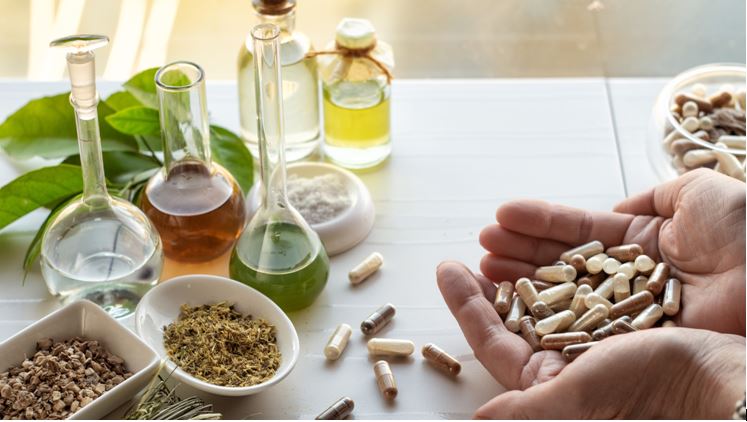Many people underestimate the prevalence of nutritional deficiencies, which can affect millions globally. These can lead to health concerns like fatigue, joint pain, hair loss and more which we tend to ignore easily. Fortunately, addressing these deficiencies is possible with the correct supplements. This article talks about the ways to combat these deficiencies and showcases vital supplements for improving energy levels, promoting joint health and enhancing hair growth.
1. Boosting Energy Levels: The Top B12 Supplement
Vitamin B12 deficiency is one of the most common deficiencies, particularly in vegetarians and older adults. It plays a significant role in red blood cell formation, energy production and nerve function. Deficiency symptoms include chronic fatigue, weakness and mood changes.
Signs of Vitamin B12 Deficiency:
⦁ Persistent fatigue and weakness
⦁ Memory problems and cognitive decline
⦁ Numbness or tingling in the hands and feet
⦁ Mood changes, including depression
Why Choose B12 Supplements?
B12 is found naturally in animal products, making it harder for vegetarians or vegans to get enough through diet alone. Even for those who consume meat, factors like aging and digestive issues can impair absorption. Hence, consuming the best B12 supplement for fulfilling adequate levels of B12 and recovering from deficiency becomes necessary.
Best B12 Supplement for Energy
When selecting a B12 supplement, look for one containing methylcobalamin, the bioactive form of B12 that is easily absorbed and utilized by the body. The right B12 supplement can help restore energy, improve mood, and support brain function.
Dosage and Recommendations:
⦁ Dosage: Most adults need around 2.4 mcg of B12 daily, but those with a deficiency may require higher doses, as recommended by a healthcare provider.
⦁ Supplement Recommendation: Look for supplements offering 500 mcg to 1000 mcg of methylcobalamin per serving for optimal results.
2. Alleviating Joint Pain: The Best Medicine for Joint Pain
Joint pain is a widespread issue that can be caused by conditions like arthritis, inflammation, aging or engaging in repetitive tasks that strain our joints. Inadequate nutrition particularly a lack of Vitamin D, magnesium, collagen, and omega-3 fatty acids can contribute to discomfort in our joints.
Signs of Nutritional Deficiencies Related to Joint Pain:
⦁ Stiffness and limited joint movement
⦁ Chronic pain in the knees, hips, or hands
⦁ Swelling and tenderness around the joints
How Supplements Help in Joint Health
The right combination of supplements can help reduce inflammation, strengthen joints, and enhance flexibility.
– Glucosamine and Chondroitin: These are popular for supporting cartilage health and reducing joint stiffness.
– Collagen Peptides: Collagen supports joint structure and integrity, reducing pain and improving mobility.
Best Medicine for Joint Pain
When it comes to supplements or the best medicine for Joint pain, look for a combination that includes collagen peptides, glucosamine, and chondroitin. These ingredients work synergistically to rebuild cartilage and alleviate discomfort.
Dosage and Recommendations:
⦁ Vitamin D: Adults need 600-800 IU of Vitamin D daily, depending on age and exposure to sunlight.
⦁ Magnesium: Aim for 300-400 mg of Magnesium daily to support joint and muscle health.
⦁ Omega-3 Fatty Acids: A supplement with 1000 mg of combined EPA and DHA (types of Omega-3) per day is beneficial for joint health.
3. Enhancing Hair Growth and Thickness: Vitamins for Hair Growth
Hair loss or thinning is often linked to deficiencies in vitamins and minerals. Key nutrients that support hair health include biotin, zinc, and vitamin D. These nutrients play a vital role in hair growth, scalp health and the maintenance of hair thickness.
Signs of Nutritional Deficiencies Affecting Hair Health:
⦁ Thinning hair and noticeable hair loss
⦁ Dry, brittle hair that breaks easily
⦁ Slow hair growth or a lack of new hair growth
How Vitamins Improve Hair Health?
– Biotin: Known as vitamin B7, biotin strengthens hair and nails while promoting growth.
– Zinc: Zinc deficiency can lead to hair shedding. Zinc helps regulate oil glands around hair follicles, ensuring healthy growth.
– Vitamin D: Low vitamin D levels are associated with alopecia and hair thinning. Vitamin D also plays a role in creating new hair follicles.
Vitamins for Hair Growth and Thickness
The best hair growth supplements usually contain a mix of vitamins for hair growth and thickness like biotin, zinc, vitamin D, and other supporting nutrients like iron and folate. Look for supplements that target these specific deficiencies and promote thicker, stronger hair.
Dosage and Recommendations:
⦁ Biotin: A dose of 5000 mcg daily is commonly recommended for improving hair health.
⦁ Vitamin D: Aim for 600-800 IU daily, as Vitamin D deficiency is linked to hair loss.
⦁ Zinc: A daily intake of 8-11 mg of Zinc is sufficient to support hair growth and scalp health.
Final Thoughts
Addressing nutritional deficiencies with the right supplements can significantly improve your overall health, energy levels, and appearance. However, it’s essential to choose high-quality supplements and consult with a healthcare provider before starting any new regimen. Whether you’re looking to boost energy with the best B12 supplement, reduce joint pain, or enhance hair growth, these targeted supplements can make a profound difference in your daily life.





